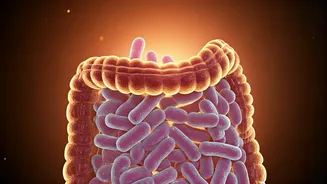Hydrate with Hydrogen
The first habit centers on hydration, with a twist: molecular hydrogen. Proper hydration is fundamental for many bodily functions, and this goes beyond
just drinking water; the quality of the water is essential. Molecular hydrogen, infused in water, is believed to offer additional benefits at a cellular level. It acts as an antioxidant, which helps to neutralize free radicals, contributing to overall well-being. Focusing on hydration, particularly with hydrogen-rich water, helps set the stage for optimal gut health. It allows the body to function efficiently, ensuring all systems work in concert. A well-hydrated gut is better equipped to digest food, absorb nutrients, and eliminate waste, thus impacting the entire body. The aim is to ensure that you are taking in enough fluid, but also giving your body the best possible tool to do this. By prioritizing hydration, the groundwork is laid for the other lifestyle changes that follow.
Sleep Rituals Matter
The second habit involves sleep rituals. The quality of sleep directly affects the gut. When sleep is disrupted, the gut microbiome can become imbalanced, leading to various digestive issues. The goal is to establish consistent sleep patterns, to help regulate the body's natural rhythms. Creating a bedtime routine is crucial. It might include reading, a relaxing bath, or meditation to signal to the body that it's time to rest. Make sure to create a dark, quiet, and cool environment to enhance the sleep experience. It is just as important to maintain a consistent sleep schedule, even on weekends. Doing this helps to regulate the body's circadian rhythm, which in turn influences the gut microbiome. The gut and brain are intimately connected, a lack of sleep stresses the brain, which affects the gut. The right sleep rituals help the gut to repair, regenerate, and maintain overall health.
Fermented Foods Daily
Incorporating fermented foods is the third habit, this involves introducing foods like yogurt, kefir, kimchi, and sauerkraut into your daily diet. These foods are rich in probiotics, which are beneficial bacteria that contribute to a healthy gut microbiome. Probiotics help balance the gut flora, assisting in digestion, and improving nutrient absorption. The introduction of fermented foods should be done gradually. If your gut is not used to it, overdoing it too soon can cause some digestive upset. Eating small portions can help to allow the body to adjust. In addition to probiotics, fermented foods often contain prebiotics, which are fibers that serve as food for the probiotics. This combination gives a dual benefit for your gut health. Making fermented foods a daily habit supports a diverse and thriving gut microbiome. This in turn, reduces inflammation, boosts immunity, and improves overall health.













